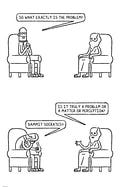Howdy readers! This is an issue about stress and its implications. I will make no secret of the fact that I was inspired by this episode of the Huberman Lab podcast with Dr. Elissa Epel.
I. Is it a problem or a challenge?
Back when I was an account exec in an advertising agency (good times, not), I had a client who always said when I called him with some issue: “Irina, we don’t have a problem, we have a challenge.” I’m sure you are familiar with this kind of talk. Well, apparently, as annoying as I found that, it turns out that he was on to something.
This study found exactly that:
When people frame their negative situations into challenges as opposed to threats they found their stress levels more manageable. In other words, if you choose to view your negative as a challenge, as a manageable situation then you are more likely to experience the good kind of stress.
II. Is all stress equal?
Nope, it’s not. There are at least two types:
The distress: that’s the disrupting kind of stress where you find yourself flooded with tension and anxiety. That is the state where you find yourself getting stuck.
This is the stress that we all want to avoid. We are flooded with negative thinking, catastrophizing, scenarios, and such.
The eustress: That’s the stress that you feel when you have a challenge or when you are mobilized to do something that is hard but that you think you can do.
Do you know those moments when you are faced with a really cool situation or project and you are excited but also a bit anxious about how it’s gonna be? You are ready to take on feedback and implement it?
That is eustress working for you.
III. About you.
Stress is not going to go away from your life. Nor should it. We cannot live a life without stress. We will die. Surely. But what is more important is how you choose to treat yourself and the stress in your life.
How can you bring more eustress into your life?
How can you manage your distress? Do you know what are the situations in which you feel distress? Are those manageable?


